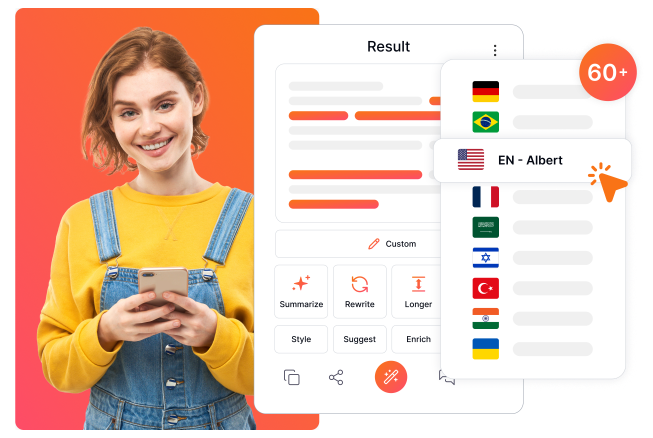How AI Writing Tools Transform Content Creation
AI publishing resources are no longer a innovative concept but a practical answer reshaping the way in which content is created. By leveraging artificial intelligence, these tools have become required for specialists looking to streamline their workflows, raise material quality, and undertake the growing demands of the digital content landscape. AI Writer (นักเขียน AI) methods are transforming content development with important data and insights.

Improved Effectiveness and Rate One of the very most substantial benefits of AI writing instruments is their power to considerably minimize the full time allocated to creating content. Based on new knowledge, AI content era methods can accelerate the publishing process by as much as 50%, enabling authors to produce top quality work in a fraction of that time period it'd traditionally take. These methods achieve this by automating similar jobs like grammar checks, rephrasing, and actually generating entire drafts based on input prompts. For instance, marketers is now able to produce outlines, social networking threads, or e-mail campaigns in a matter of moments, freeing up important time to focus on strategy and creativity. Increased Material Quality and Uniformity Statistics reveal that 65% of content marketers battle with maintaining regular quality across their output. AI writing tools resolve this dilemma by giving functions such as for example grammar corrections, tone changes, and readability enhancements. These instruments make certain that the final material is refined, professional, and arranged with the intended audience's needs. Another key feature is the ability to maintain model style continually across several types of copy. Whether it's a conventional post or a lively social media upgrade, AI instruments may change and refine the tone to resonate with readers. Increased SEO Efficiency Creating material enhanced for search engines is really a complicated however vital task. Study shows that 68% of online experiences start out with a research motor, making SEO an vital section of content creation. AI-powered methods can generate keyword-rich content and suggest changes to meta brands, explanations, and headers, helping writers build SEO-friendly posts that rank higher on search results. Some tools also analyze past trends and recommend material subjects that are likely to entice larger traffic. By developing keyword study and optimization in to the writing method, companies can guarantee their content reaches a broader audience. Personalization and Audience Wedding AI tools use device understanding calculations to analyze audience information and provide actionable insights. These resources help the formation of individualized content that resonates with specific demographics. Data demonstrate that individualized material drives 80% larger involvement charges, proving its success in capturing and maintaining reader attention. For instance, AI can recommend words or topics predicated on person conduct, ensuring that material is applicable and interesting for the target audience. This amount of personalization enhances consumer experience and fosters tougher associations with readers. The Potential of AI in Material Creation

The impact of AI in content generation is undeniable, but that is only the beginning. Business forecasts suggest that industry for AI material technology resources may grow by 20% annually over the following five years. Whilst the technology evolves, these methods are likely to become much more superior, offering functions such as multilingual abilities, real-time audience feedback, and greater creative collaboration. AI publishing resources are not here to displace human writers but to enable them. By automating routine jobs, ensuring quality, and offering data-driven insights, these tools are reshaping digital interaction and enabling creators to create more impactful and effective content. The rise of AI in this field signs a fantastic era of development in content creation.